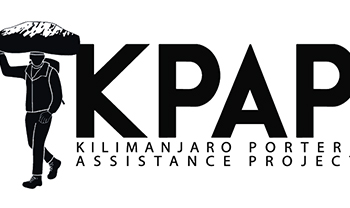What is altitude sickness?
Altitude sickness, or acute mountain sickness (AMS), is a negative health effect of high altitude. The percentage of oxygen in the atmosphere at sea level is about 21%. As you climb higher up the mountain the percentage remains the same but the number of oxygen molecules per breath is reduced. At 3,600 m (12,000 ft), there are roughly 40% fewer oxygen molecules per breath. The body therefore finds it hard to adapt and function as normal with less oxygen. Altitude sickness is caused by a failure of the body to adapt quickly enough to these lower levels of oxygen. Often climbers make the mistake of going too high (altitude) too quickly (rate of ascent).
But don't worry, it is perfectly normal to get altitude sickness on Kilimanjaro. In fact, at over 3,000 metres more than 75% of climbers will experience at least some form of mild AMS. It is therefore more than likely that you will experience some form of altitude sickness when climbing Kilimanjaro. Age, sex or physical fitness have no effect on your likelihood of getting altitude sickness. Just because you haven't had it before doesn't mean you won't develop it on another trip. It is essential you are clued up.
How Does Lack Of Oxygen Lead To Altitude Sickness:
The low oxygen concentration can trigger the blood vessels in the lungs to constrict which may cause higher pressure in the lung arteries. This may also lead to fluid leakage in the blood vessels which directly go to the lungs.With Kilimanjaro Trek’s Altitude Sickness Guide for Kilimanjaro Climbs this can be avoided. We guide our clients well in advance and trained professional trekkers accompany them to the summit and take care of their health conditions constantly and lift their spirits while summiting the great Kilimanjaro
Can altitude sickness be avoided?
First and foremost, being well prepared for your climb will always put you one step closer to a successful and stress free climb. It is good to know that there is no way to ensure that you don't get affected by altitude sickness. There is a common misconception that if you are physically fit, you are less likely to endure altitude sickness. While physical fitness and altitude sickness correlate, they are not directly linked to one another. By this we mean that if you are physically fit, your body is more likely to withstand and manage the pressures of consecutive days of hiking, which makes any additional altitude sickness symptoms that may arise slightly more bearable.
So even though there is no routine to avoid it all together, there are a couple of things you can do to prepare. If you are able to, try to climb high mountains as often as possible to give your body an idea of what to expect. There have also been instances of people training with altitude masks. This is basically a mask that emulates the decrease in oxygen that you will experience on your climb, giving you the opportunity to experience it beforehand. Whether or not this is effective in avoiding AMS as a whole is still unclear, but if you have the option why not give it a go?
How To Prevent Altitude Sickness:
The important question now arises is - How to Avoid Altitude Sickness Kilimanjaro? We have articulated these basics to prevent you from Kilimanjaro Altitude Sickness: Prepare Before Ascend: Acclimatization of Kilimanjaro is highly recommended. Avoid drinking alcohol, taking stimulants, smoking, or consuming caffeine on the mountain.
Use of Diamox: Acetazolamide or Diamox is a Kilimanjaro Altitude Sickness Medication that has proved in preventing this condition. The drug helps to improve the acidity of the blood by acting as a diuretic and promoting urination. It is also recommended that taking Diamox 2-3 days 2 weeks before departure to check if you suffer any side effects..







